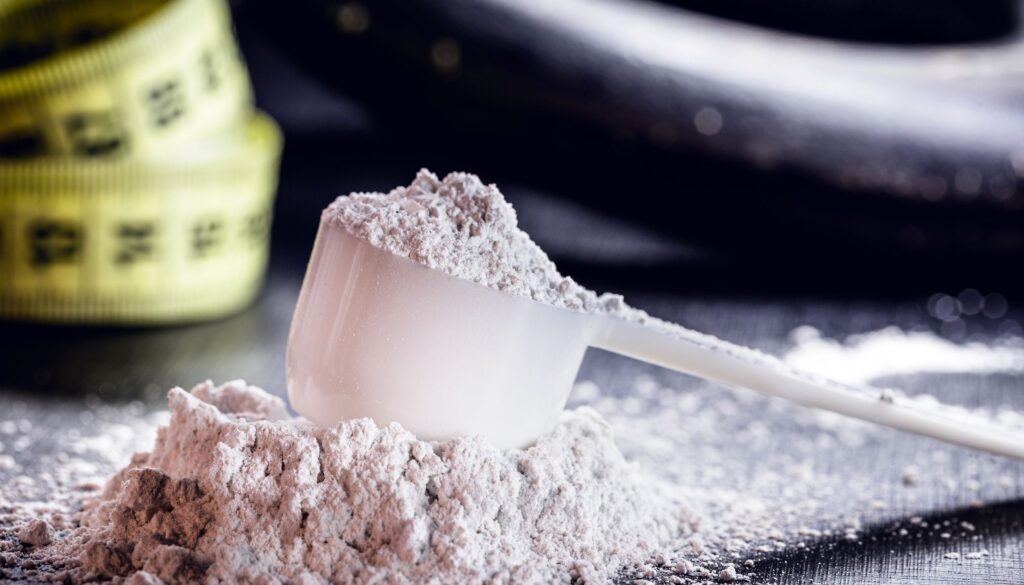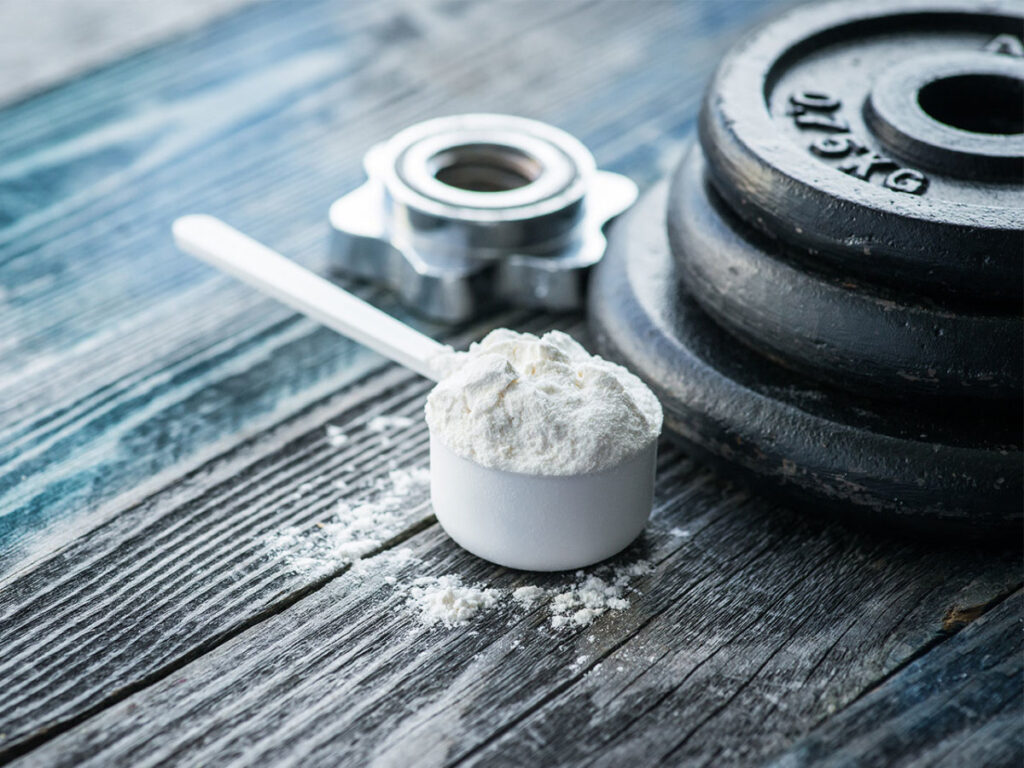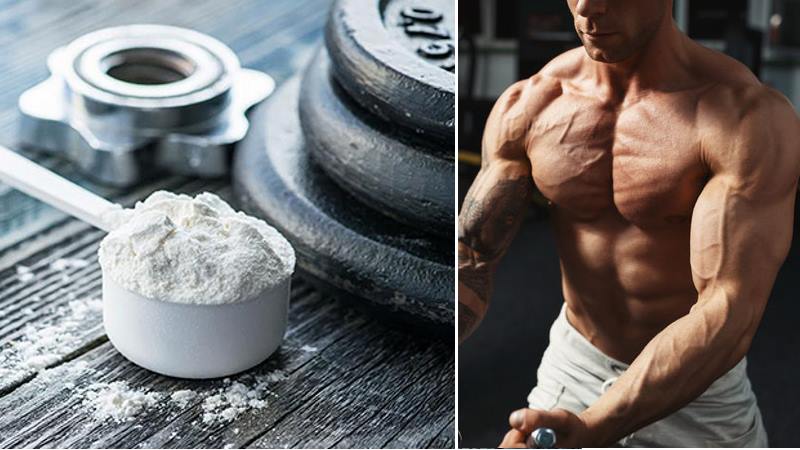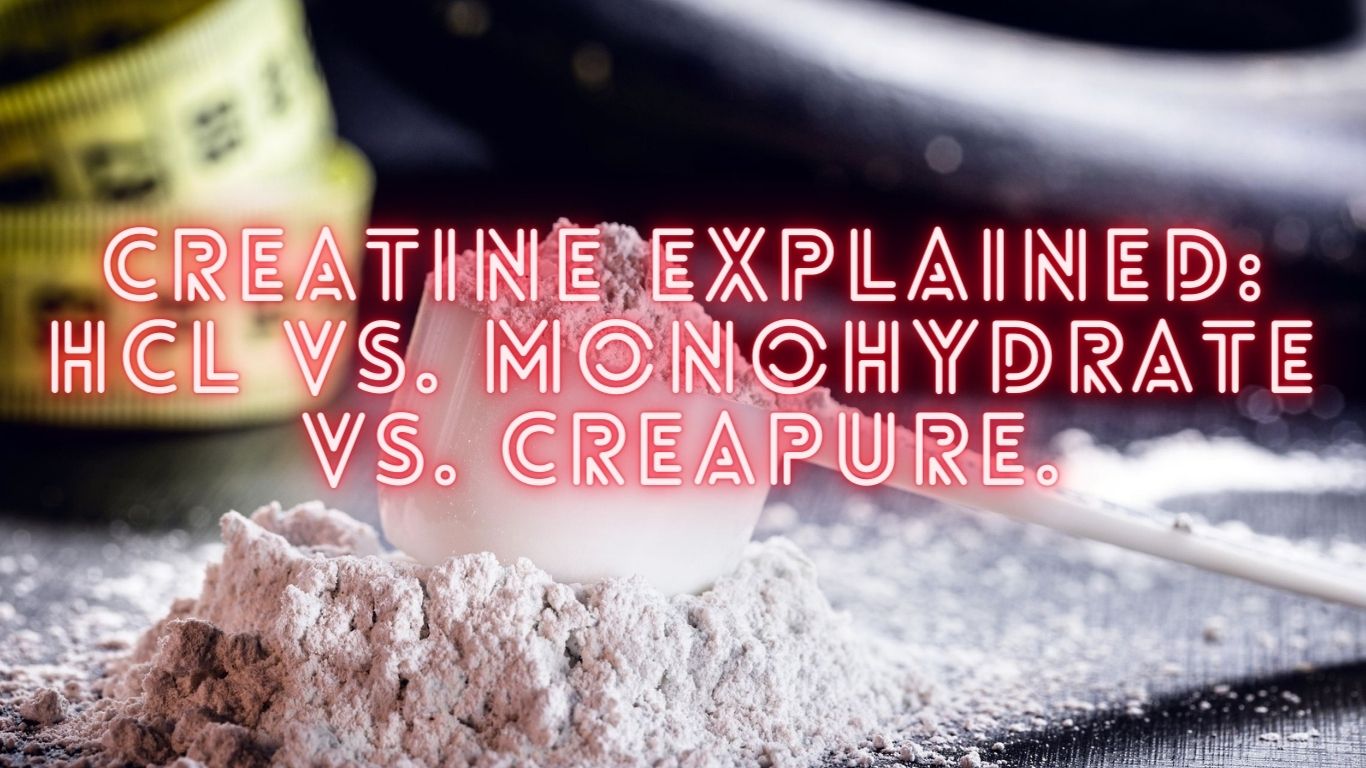Creatine has risen to prominence in the area of sports nutrition and fitness supplements. Its appeal stems from its well-established reputation for improving athletic performance and promoting muscular building. Not all creatine supplements, however, are created equal. In this essay, we’ll look at creatine and examine three prominent forms: Creatine HCL vs Monohydrate vs Creapure. Whether you’re a seasoned athlete or just starting out on your fitness path, knowing the distinctions between different creatine variants can help you make an informed decision about which one best matches your needs.

What is Creatine?
Let’s start with the fundamentals before delving into the intricacies of various creatine types. Creatine is a naturally occurring substance found in small amounts in certain meals that the body synthesizes, predominantly in the liver, kidneys, and pancreas. It is essential for supplying energy to muscles during high-intensity, short-duration activities such as weightlifting and sprinting.
When you take creatine supplements, the creatine phosphate is normally retained in your muscles. During strong physical exercises, this stored form of creatine acts as a quick energy source. As a result, many people use creatine supplements to improve their workout performance, develop muscle, and aid in muscle recovery.
Now, let’s look at the three most common types of creatine supplements:
Creatine HCL vs Monohydrate vs Creapure
Creatine Monohydrate: The Classic Choice
For decades, Creatine Monohydrate has been the go-to supplement for sportsmen and bodybuilders. It is the most well studied and widely utilized type of creatine. Creatine monohydrate is the most economical and widely available type of creatine on the market, consisting of creatine molecules bonded to a water molecule.
Creatine Monohydrate Advantages:
- Proven Efficacy: Creatine monohydrate has been the subject of multiple scientific research, all of which show that it is helpful in boosting muscle strength, endurance, and mass.
- Cost-Effective: This kind of creatine is inexpensive and offers outstanding value for money. Creatine monohydrate is a wonderful alternative for an inexpensive way to improve your exercises.
- Muscle Hydration: Creatine monohydrate has been shown to pull water into muscle cells, resulting in increased cell volume and muscular fullness.
- Muscle Recovery: It promotes speedier recovery between exercises by minimizing muscle cell damage and inflammation.
Drawbacks of Creatine Monohydrate:
- Water Retention: When using creatine monohydrate, some people have modest water retention, which may cause a slight rise in body weight.
- Gastrointestinal Issues: When using creatine monohydrate, some people may experience stomach pain, such as bloating or cramps.

Creatine HCL: Hydrochloride Power
Creatine Hydrochloride (HCL) is a newer type of creatine that has recently gained prominence. This form of creatine is created by adding a hydrochloride group to the creatine molecule, which makes it more water-soluble.
Creatine HCL Advantages:
- Improved Solubility: Because creatine HCL is more soluble in water, it may be easier for your body to absorb, thereby lowering the risk of stomach difficulties.
- Lower Dosage: Because of its greater solubility, creatine HCL requires lower doses to obtain the same results as creatine monohydrate.
- Less Water Retention: When compared to creatine monohydrate, creatine HCL may produce less water retention, making it an enticing solution for people concerned about bloating.
- Improved Purity: Many creatine HCL supplements, such as Con-Cret, have higher purity levels, reducing the possibility of contaminants and negative effects.
Cons of Creatine HCL:
- Limited Research: While it shows potential, creatine HCL has received less investigation than creatine monohydrate. As a result, its long-term impacts and advantages may be less well-documented.
- Cost: Creatine HCL supplements are frequently more expensive than creatine monohydrate, which can be a disadvantage for people on a limited budget.
Creapure: The Gold Standard
Creapure is a brand of creatine monohydrate that is noted for its high quality and purity. Creapure, which is manufactured in Germany, is well-known in the sports nutrition sector for its strict quality control and manufacturing practices.
Creapure’s Advantages:
- Unrivaled Purity: Creapure is known for its excellent quality and purity, as it is manufactured in a specialized facility that adheres to strict quality requirements.
- Scientifically Proven: Several studies have shown Creapure’s usefulness in improving athletic performance, muscular growth, and strength improvements.
- Low Impurities: Creapure undergoes extensive testing to ensure low impurities, which might be reassuring for individuals concerned about the quality of their supplements.
- Well-Tolerated: It is generally well-tolerated, with a lesser risk of gastric discomfort when compared to other creatine forms.
Creapure’s disadvantages include:
High Price: Quality is generally expensive, and Creapure is no exception. It usually costs more than generic creatine monohydrate.

Choosing the Right Creatine for You
Now that we’ve gone over the benefits of each of these creatine types, the major issue is: which one should you go with? The answer is determined on your personal objectives, finances, and tolerance for any adverse effects.
- Creatine Monohydrate is a great option for individuals on a tight budget, and it is backed up by a large body of research. If you’re just getting started with creatine supplementation, this is a good place to start.
- Creatine HCL If you are concerned about water retention or stomach discomfort, Creatine HCL may be an excellent alternative. Its greater solubility may help to alleviate these problems. It is, however, a newer alternative with less studies supporting its long-term consequences.
- Creapure is the superior choice for individuals who value purity and excellence. Creapure is worth the cost if you’re an experienced athlete or bodybuilder seeking for the best of the best.
Creatine Tips for Effective Use
Whatever creatine type you pick, there are some general guidelines for getting the most out of your supplementation:
- Consistency is Key: Creatine works best when taken on a consistent basis. Aim for daily use, and you’ll see results over time.
- Stay Hydrated: Drink plenty of water throughout the day to help your body use creatine efficiently.
- Combine with Carbohydrates: Creatine uptake is improved when combined with carbohydrates, so try taking it with a carb-containing meal or smoothie.
- Consider a Loading Phase: Some people choose to begin with a loading phase in which they take a larger dose for a week before converting to a maintenance dose. This might assist in saturating your muscles.

Final Thoughts
To summarize, the market of creatine supplements offers a wide range of options, each with its own set of benefits and cons. Whether you choose Creatine HCL vs Monohydrate vs Creapure, your choice should be based on your personal fitness objectives, affordability, and tolerance for potential adverse effects.
Creatine Monohydrate is a popular supplement due to its established efficacy and low cost. It has withstood the test of time and is supported by a plethora of research confirming its ability to improve strength, muscle growth, and athletic performance.
Creatine HCL, on the other hand, with its increased solubility and decreased water retention, may be the best choice for people looking to limit any adverse effects. However, when compared to Creatine Monohydrate, there has been less research on its long-term effects.
Creapure is the gold standard for individuals who desire unrivaled purity and quality. It is subjected to severe quality control procedures to ensure low impurities and high performance. While it is expensive, it is a good choice for serious athletes and bodybuilders who value top-tier supplements.
Finally, the greatest creatine for you is determined by your own preferences and goals. Before beginning any new supplement regimen, it’s best to check with a healthcare expert or a competent nutritionist, especially if you have previous health concerns.
Creatine has repeatedly proven to be an effective ally in accomplishing fitness goals in the realm of sports nutrition. Whether you want to increase muscle strength, endurance, or recuperation, the decision between Creatine HCL vs Monohydrate vs Creapure should be based on your specific goals and preferences. Whatever method you choose, keep in mind that the path to your fitness objectives begins with information, determination, and a well-balanced approach to supplementing.

